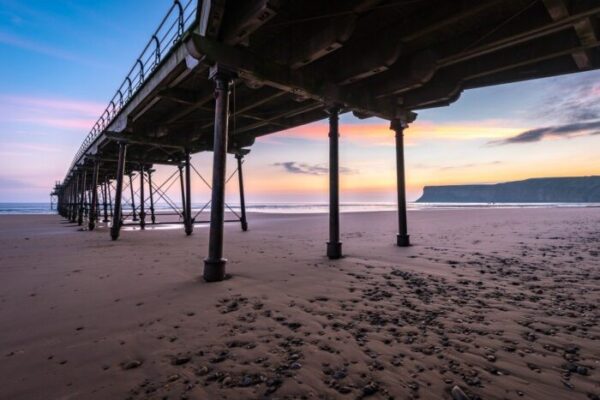Thousands of tonnes of dead shellfish were washed up on the shore from the North Sea on Teesside and the Yorkshire coast in October 2021. So far there has been no clear explanation for the deaths, but an independent panel appointed by Defra indicated in January that the probable cause was “a novel pathogen”.
At a Parliamentary debate on 30 March, as reported by Fishing Daily, Labour MP, Alex Cunningham asked the Secretary what steps she was taking to determine the cause of the die-off of crustaceans and other sea life off the Teesside coast.
Dr Coffey replied: “Following a Department for Environment, Food and Rural Affairs-led multi-agency investigation last year, I commissioned a further review, which reported in January, regarding the issue that affected crustaceans. It ruled out some of the prevailing theories, including the role of pyridine, and the view of the independent expert panel was that finding something to which we can attribute the cause with certainty is unlikely. However, we have continued to monitor this.”
Shadow Secretary of State, Labour’s Jim McMahon then questioned the Dr Coffey. He said:
I sat with fishers a few weeks ago, alongside my hon. Friends the Members for Stockton North (Alex Cunningham) and for Middlesbrough (Andy McDonald), to hear about the impact that the Teesside crustacean die-off has had on the livelihoods of local fishers. Let me tell the Secretary of State what they said:
“We’re finished. There’s nothing left to catch.”
“No-one listens. We’re just fishermen!”
“We’re not asking for a handout. We’re asking for a roadmap to get back on track.”
“Levelling up? They’ve levelled Teesside down”.
Working people—the grafters of this country and the foundation of our food security—are being ignored. It is wrong that public figures, instead of stepping up like true public servants, are acting like Houchen’s henchmen and pound-shop goons, closing down debate and legitimate challenge. Well, it will not work—this is not going away. Will the Secretary of State take a different course and meet Stan Rennie and the North East Fishing Collective with me to finally get to the bottom of this and give them the answers they deserve?”
Dr Coffey replied: “I am really disappointed by that. The shadow Secretary of State has basically impugned the integrity of the chief scientific adviser of DEFRA.
Alex Cunningham defended his Labour colleague against the accusation from Dr Coofey saying: “No he did not!”
Dr Coffey refused to stand down from her statement:
“The hon. Gentleman has just, with his words, done that, and I am really concerned about that. This issue is very important. That is why we undertook a further independent review. The chief scientific adviser of DEFRA brought in more people.
The Shadow Secretary asked if Dr Coffey would meet with the fishermen to which she replied:
“I do not need to meet with them, because there has already been investigation into this, and the role is to make sure we do what we can to support the fishermen, including through the seafood fund and the fisheries and seafood scheme, which is now open.”
The full debate can be read in Hansard here.
New reports of shellfish washing up dead on north-east England’s coast
Thousands more dead and dying shellfish have been washed up on a beach on a stretch of coast where there has been a mass crustacean die-off, the BBC, Guardian and Daily Mail reported. The dead mussels, crabs, razor clams and starfish have been seen on the sands at Saltburn-by-the-Sea, south of the River Tees.
Stuart Marshall, who owns a nearby beach hut, said it was “devastating”
The Environment Agency (EA) said it was caused by the weather and high tides and was normal for the time of year. The EA said the recently arrived black substance was coal deposit “which is not unusual for this stretch of coastline”.
A spokesperson said: “While we know people are concerned, the combination of recent heavy swell, spring tides and onshore winds means natural wash ups will occur more often.”
Starfish, razor clams and mussels were easily dislodged during storms and some young fish were vulnerable to being stranded on shallow gradient beaches such as Saltburn, the EA added.
